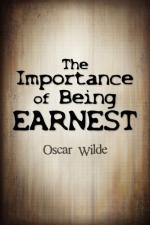|
This section contains 2,232 words (approx. 8 pages at 300 words per page) |

|
Escaping Social Rules in The Importance of Being Earnest
Summary: Discusses the Oscar Wilde play The Importance of Being Earnest. Discusses how Wilde's characters lead double lives and examines their motivation for doing so. Explores the theory that the main reason is connected to the restrictive social etiquette of late Victorian/early Edwardian England.
The main characters do use their double lives to escape social regulation, although in differing ways and on each character different social pressures are acting. The women live alternative mental lives through fantastical journals whereas the men, due to their comparatively greater social freedom, are able to create alternative physical lives. Jack pursues a double life due to the pressures of rural, family responsibility. Algy does the same due to the authoritarian influences of his relatives and his financial troubles. 'The Importance of Being Earnest' was written in the tradition of the 'well-made play', fast paced and almost farcical plays peopled by stock characters, as described by Peter Raby; "two pairs of young 'romantic' lovers, a pair of older 'grotesques', separated orphan brothers and a 'blocking' parent." The heroes were conventionally brave and possessed `earnestness', valued very highly in Victorian society, encompassing all the aspects of an ideal...
|
This section contains 2,232 words (approx. 8 pages at 300 words per page) |

|


